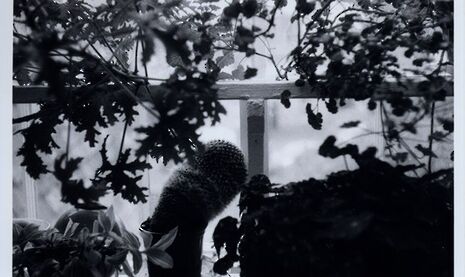Review: The Beck
A student-written production

The Beck is a quick glimpse into the world of three women, sisters Violet and Cecilia, and Violet’s daughter Beth. Each is anchored to their countryside family home, yet when Charlie, Beth’s uncle, returns with his suspicious friend Patrick, familial ties as well as the house are shown to crumble.
Beth, the feisty schoolkid played by Daisy Jones, is at the core of a conflict between generations. She has the sharpest lines, kicking out against the suffocating environment of the house, trying to move on from the past whilst her mother latches onto it. Her wisdom despite her youth comes to the forefront in her unnervingly funny conversations with Patrick, brilliantly played by Joe Pieri. Charlie, played by Benedict Flett, also excelled as the charming but old-fashioned uncle, his most memorable moment being mending a chandelier and describing his peppermint-scented schooldays. There is definitely a period-drama, Downton Abbey-esque feel to the production which perfectly conveys the isolation of the family, the lack of interference with their lives, which inevitably leads to the strains within.
The set design and use of space in the Corpus Playroom is really effective; we see the state of the sisters’ minds in the decaying floorboards and rickety shelves, the clutter and the chaos. On the shelves is an intricate jumble of empty wine bottles, cereal boxes, photographs and tea-cups, and the audience’s closeness to the actors further creates the sense of an intimate, domestic space. Hannah Mac impressively portrays a mother simultaneously frustrated while also dominant in this environment. Yet the most compelling performance is by Martha Murphy as Cecilia; in one particular scene, she seems to bear the emotions of all three women.
One of the only drawbacks of the play is the interlude in which Mariana takes the stage. She clambers onto the table, standing against a red spotlight and sings (well) against a poor backing track. I don’t think I was alone in feeling confused by these occasional musical performances; Mariana is never present in the actual scenes of the play.
This new play, by student Flora de Falbe, ranges from the beautifully intriguing, to the intensely dramatic, the witty to the disconcerting. The relationships between the family members are masterfully crafted and handled, and there is a real depth to the connection between the three central women. If anything, the time we have in Falbe’s world is too short.
 Features / Should I stay or should I go? Cambridge students and alumni reflect on how their memories stay with them15 December 2025
Features / Should I stay or should I go? Cambridge students and alumni reflect on how their memories stay with them15 December 2025 News / Dons warn PM about Vet School closure16 December 2025
News / Dons warn PM about Vet School closure16 December 2025 News / Cambridge study finds students learn better with notes than AI13 December 2025
News / Cambridge study finds students learn better with notes than AI13 December 2025 News / SU reluctantly registers controversial women’s soc18 December 2025
News / SU reluctantly registers controversial women’s soc18 December 2025 News / News In Brief: Michaelmas marriages, monogamous mammals, and messaging manipulation15 December 2025
News / News In Brief: Michaelmas marriages, monogamous mammals, and messaging manipulation15 December 2025








